-

VIDEO Dragon's Dogma 2 is Gen-Z Morrowind and I love it
A barnstorming AAA fantasy adventure that pointedly refuses to hold the player's hand? More of that, please.
-

PODCAST Family done a runner? What video games leave you on your own?
Blood and water are of equal consistency when irradiated.
-

NO PRESSURE, EH? Fallout explained - Amazon's TV show dissected in less time than it takes for the nuke to drop in Fallout 4's intro
Sadly, I'm not quite a post-apocalyptic rap god.
-

A NUCLEAR TAKE I don't like the Fallout games, but the show might have made me a convert
The power of television.
-

DEFYING GRAVITY Witch actor is going to lead the upcoming Jurassic World sequel? Seems like a wicked, but possibly popular choice has been made
Just follow the yellow brick road and you'll find your lead.
-

BEEP, BEEP, BEEEEEEP Elden Ring's now been beaten using morse code, and yes, watching it happen will probably make you feel useless at games
A dot and dash dance with death.
-

BREAKDOWN In a post-Armored Core 6 world, can Mechabreak smash the mecha curse?
Is there even an appetite for more role-heavy multiplayer games in a world with Overwatch and Valorant?
Psst! Explore our new "For you" section and get personalised recommendations about what to read.
-

Deals This Turtle Beach headset is great for PC and PS5 and is the cheapest it's ever been
Save 25% on this 2.4Ghz wireless headset with a massive battery life.
-

Podcast Best Games Ever Podcast - Extended Edition Info Page
All the info you need to get your hands on the for-members-only extended edition of VG247's podcast.
-

G-G-G-GHOSTS??? Love it or hate it, Velma season 2 gets its first trailer
It certainly looks like more of the same, at the very least.
-

Next Monday, eager fans will be able to tune in and get an update on the upcoming ATLAS RPG.
-

THE BAD FIGHT? Remember Fallout 3's Three Dog? You might get to hear a "darker" DJ voiced by his actor in future Fallout TV series episodes
Watch out chiiiiilldren, the narrator of the good fight has "something new to unleash", assuming he gets his way.
-

THE GHOUL, SPEAKING Yes, you can call that Vault-Tec number from Amazon's Fallout, but you might not like what you hear
I'd rather text anyway.
-

Deals This full-size mechanical gaming keyboard from Logitech is cheaper than its Black Friday price
A great keyboard for all-around use.
-

He also fancies "David Lynch-style" Disco Elysium. You can certainly sign me up for that.
-

DISCO INFERNO Arrowhead knows how "ridiculous" Helldivers 2's fire damage is, working on a fix
Someone turned the thermostat up too high.
-

AN ODD COMMUNITY Sony's live-action One Punch Man movie is getting a rewrite from... Rick and Morty co-creator Dan Harmon?
Wouldn't have been my first choice.
-
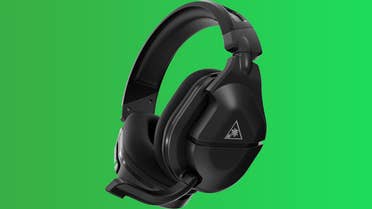
This Turtle Beach headset is great for PC and PS5 and is the cheapest it's ever been
Save 25% on this 2.4Ghz wireless headset with a massive battery life.
-

This full-size mechanical gaming keyboard from Logitech is cheaper than its Black Friday price
A great keyboard for all-around use.
-

Best Xbox deals for April 2024
The best deals on Xbox Series X/S, Xbox games, Game Pass, accessories and more.
-

MUTATED MAPPING The Fallout TV show's got a big vault map, and it's now been turned into an interactive Google Earth overlay
If you're big into Fallout lore, this'll be right up your irradiated and possibly ghoul-filled alley.
-

THANKS, FALLOUT! Everybody is playing Fallout 4 and New Vegas, and it’s all thanks to Amazon’s Fallout
Back in the wastelands.
-

CLOCK'S TICKING Final Fantasy 7 Remake part 3 might be out sooner than you'd think
If all goes to plan you won't be waiting as long as you did for Remake or Rebirth.
-

IT'S SOMETHING EA's Black Panther game might be open world, according to a recent job listing
We know next to nothing about the game at this point in time.
-

WHAT'S OLD IS NEW Persona 1 and 2 are getting remakes, or at least an "updated form," a prominent Atlus leaker has claimed
But where's Persona 6?
-

I'll take "Terrible ideas that should never be implemented ever" for $500, Alex.
-

SOUR TASTE Discord is seemingly banning Nintendo Switch emulator devs following Yuzu's shutdown
Another knock against Switch emulation.
-
.png?width=271&height=153&fit=crop&quality=70&format=jpg&auto=webp)
Would have been nice two months ago, but I'll take it.
-
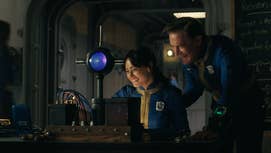
PLOT NEVER CHANGES Don't worry, Fallout: New Vegas is still canon, despite what the show might make you think
Besides, canon doesn't matter that much anyway!
-
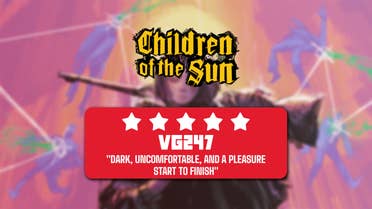
A ‘MAGNUM’ OPUS Children of the Sun review - A moody, emotive sniper-puzzle shooter dripping with style
Children of the Sun is a short but special game that is definitely bang for your buck.
-
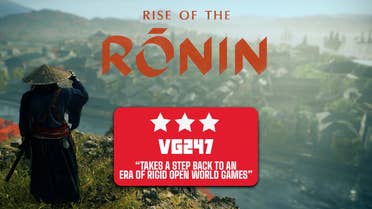
SOUP SANDWICH Rise of the Ronin review - Team Ninja without the bite, or the Nioh heights
Rise of the Ronin is undeniably an evolution of everything Team Ninja has made before, it just picked the wrong path to evolve.
-
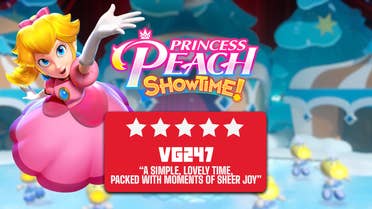
PEACHY KEEN Princess Peach: Showtime review – Nintendo's leading lady is anything but asleep at the Switch
Princess Peach proves that she's more than just a damsel that needs rescuing from a castle – and she turns in a marvelous performance whilst doing so.
-

"As soon as we've fixed it, it'll drop."
-

WILD WASTELAND The good, the bad, and John the fire dancer - as Fallout gets a TV show, here's how the series' community is doing
“The Fallout community is varied, to say the least.”
-

IONIZING IMPROV Amazon's Fallout TV show might include even more classic Fallout references than its creators intended, thanks to some improv
"In my head, I've decided it was."
-

NO DICE EA wants its own Call of Duty salt mines with Battlefield, and it doesn’t make sense
EA is back on its Battlefield Universe horse again as it continues to rope in studios to work on Battlefield. But is it all a little desperate?
-

The hype around the changes in Diablo 4's PTR made it really attractive, even to players who don't typically care about seasons.
-

BIG SCREEN SIDEARM Love Lucy's unique pistol from Amazon's Fallout TV show? There's already a cool mod that adds it to Fallout 4
Just don't take on any drugged-up ghoul cowboys, and you should have a whale of a time.
-

Before the arrival of new character Lyam Liu, Naraka: Bladepoint's Season 12 update streamlines Potentials to make them less daunting for new players and less confusing for regulars.
-

For better or worse, it's the start of a new era.
-

FINALLY Wahey, Fallout 4's next-gen update is finally set to arrive later this month
Better late than never, and right as we're all gonna be heading back to The Commonwealth on April 25.
-
.jpg?width=271&height=153&fit=crop&quality=70&format=jpg&auto=webp)
BUBBLE BURST Stellar Blade’s combat takes a lot from Sekiro, so why does it feel different?
Stellar Blade is a fun action game, except when you try to play it like Sekiro: Shadows Die Twice.
-

VIDEO Dragon's Dogma 2 is Gen-Z Morrowind and I love it
A barnstorming AAA fantasy adventure that pointedly refuses to hold the player's hand? More of that, please.
-

PODCAST The best game where your family DITCHES you? The Best Games Ever Podcast episode 95
Blood and water are of equal consistency when irradiated.
-

EXTENDED EDITION The best FREE games we'd love to PAY FOR – SUBS ONLY
As the old saying goes: the best things in life have a flat upfront cost and no microtransactions.
-

TAMRIEL TV? Is an Elder Scrolls TV show going to follow Fallout? Bethesda doesn't seem to be in any rush
Todd Howard sounds like he plans to keep on being picky, and that's fine.
-

BREAK THE BOX BANK Helldivers 2 just got new ship modules and one will, er, let you pay a lot to teach your crew to pack boxes
Hey, you never know when the ability to stick things in a container well might come in handy.
-

They should figure out the tone this time around.
-

It'd be hilarious if she played the little fella.
-

DEAD'S DEAD, FOR NOW Dead Space appears to be dead... again
Ideas for a new entry in the series were reportedly considered, but none of them ended up getting the go ahead.
-

INTO THE WOODS A new Blair Witch movie is coming, because it's easy horror money waiting to be made
Maybe this one won't be boring.
-

IT'S A PLACE Mega spoiler warning, Amazon's Fallout TV Show rather unsubtly teases a potential setting for season two
How to put this in a manner that doesn't risk letting you ruin things for yourself....uh...it's definitely a...place.
-

POST-MARVEL GIG 28 Years Later hasn't even been shot yet, but Candyman's Nia DaCosta is already circling its follow-up
Getting her mojo back.
-

RULE OR RUIN Darkest Dungeon 2 expands its realm with free standalone mode Kingdoms later this year
Find and defeat a monstrous threat before it overwhelms and destroys the Kingdom.
-

Weaponized crossover DLC blasts off this spring.
-

BE A PAL Palworld Guide: How to become a Pal Master
Get the most out of the wild islands of Palpagos with our Palworld Guide!
-
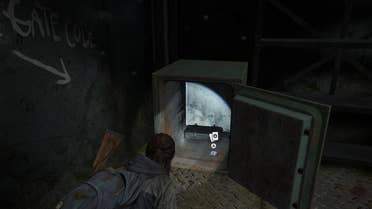
The Last of Us 2 safe codes and combinations - all safe locations
All the safe codes and their locations in The Last of Us 2.
-

Naraka Bladepoint Tier List: Best characters for Solos and Trios
These are the best characters in Naraka: Bladepoint as decided by the top pro players!
-
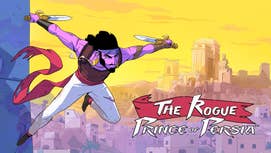
ROGUELITE STYLE! The Rogue Prince of Persia parkours into Steam Early Access this May
Persia needs a hero.
-

WITS, WATER, WONDER PlayStation Plus catalog gets a boost with Animal Well, Dave the Diver, Tales of Kenzera: Zau and three classic titles
Take a dive, solve puzzles, play the Superhero, and more in April.
-

NEEDS MORE TIME Controversial The Crow remake will be flapping into cinemas a bit later than expected
It was originally set to release this June.
-

"Fallout is a game haunted by the specter of nuclear war... but what if that specter returned, this time in the shape of an unkillable monster?"
-

BOMB DROP BINGO Binging Amazon's Fallout TV Show tonight? You can spice that up by playing wasteland cliche bingo
Annnd, there's a Vault-Tec lunch box for Lucy to fetch...BINGO!
-

PRETTY S.P.E.C.I.A.L The Fallout TV show treads the best path a video game adaptation can take
What did I do after I rolled the credits on this show? I installed Fallout 4 and New Vegas. Enough said?
-

PRISMATIC POWER Destiny 2's Final Shape is set to include a new class which lets you achieve "Transcendence" and, er, lob some special grenades
So, this is what all those real-world monks have been pursuing, the power to blow some things up in new ways.
-

WHAT A DUMP Good news, Haikyu fans: the series' latest movie finally has an international release date
The film released in Japan back in February.
-

I mean, I get the idea of trying to get your enemies to turn on each other, but odds are they'll just somehow make robo-bugs.
-

SAY IT AIN'T SNOW HBO can't find its footing with Game of Thrones as another spin-off gets canned
There are still other series in the works, though.











0